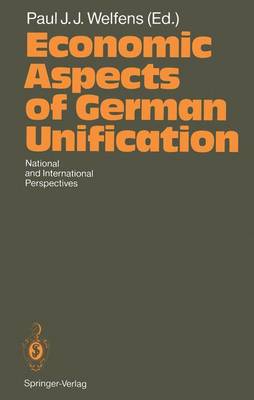German unification is changing central Europe, the EC and international economic and political relations. Prosperous West Germany with its social market economy has absorbed the socialist GDR which is facing a complex systemic transformation process. This volume analyzes the causes, developments and processes that are associated with German unification. The merger of the two Germanies provides a unique laboratory-like example of institutional and economic changes against which established economic theories and economic policy concepts can be tested. German unification raises many new questions for Germany itself, Europe, and the whole international community. Will the enlarged Germany become a new economic giant in Europe and can the FRG maintain stability and prosperity? What macroeconomic and structural problems are faced by the new Germany and what are the effects for trade, investment and growth in Germany's partner countries? Will East Germany catch up with the West and can this process serve as a model for Eastern Europe? What are the views of Poland and the USSR, and what implications arise for Western Europe and the United States?
Finally, how is the triangular relationship between the USA, the EC and Japan affected, and how does this affect the United States' ability to organize economic co-operation with Japan, Germany and other leading economies? All of these questions are addressed in the text.
- ISBN10 3540550062
- ISBN13 9783540550068
- Publish Date March 1992
- Publish Status Out of Print
- Out of Print 12 January 1995
- Publish Country DE
- Publisher Springer-Verlag Berlin and Heidelberg GmbH & Co. KG
- Imprint Springer-Verlag Berlin and Heidelberg GmbH & Co. K
- Format Hardcover
- Pages 413
- Language English
